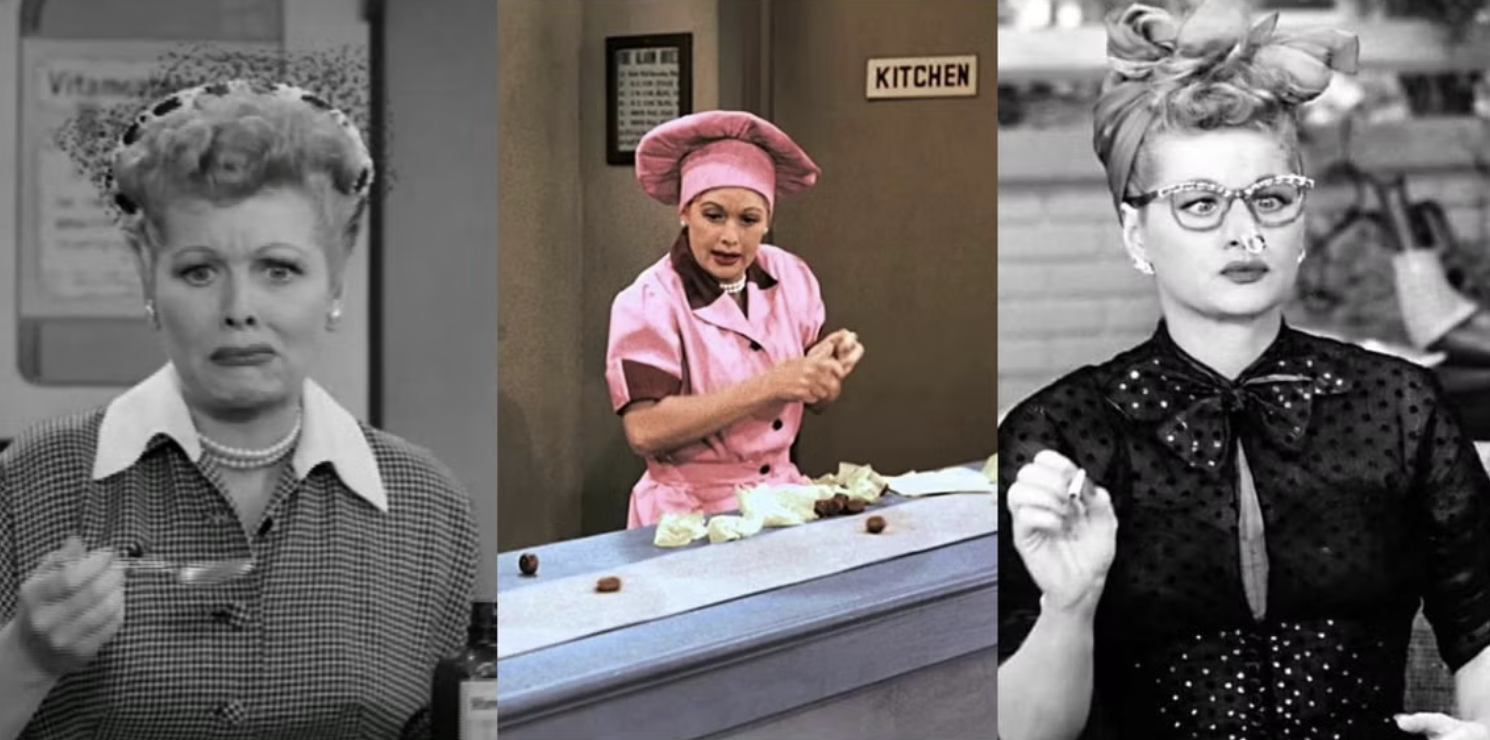
Decades after it first graced our screens, I Love Lucy isn’t just a classic; it’s a foundational text in the history of television comedy. Its influence echoes through countless sitcoms that followed, from Friends to The Big Bang Theory. Lucille Ball’s comedic genius, combined with groundbreaking production techniques, cemented its place as the undisputed “grandmother” of the sitcom. Here’s why its legacy continues to shine:
1. The Groundbreaking Laughter: Pioneering the Live Studio Audience:
Before I Love Lucy, most television shows relied on canned laughter. But Lucille Ball and Desi Arnaz insisted on filming their show in front of a live studio audience. This revolutionary decision injected an unparalleled energy and spontaneity into the performances. The genuine reactions of the audience became an integral part of the comedic timing, creating a dynamic and infectious viewing experience. This innovation wasn’t just a technical choice; it fundamentally changed how sitcoms were made and how audiences connected with them, paving the way for the immersive feel of countless subsequent comedies.
2. The Multi-Camera Revolution: Capturing Every Hilarious Angle:
I Love Lucy was a pioneer in the use of a multi-camera setup for filming sitcoms. Instead of relying on a single camera and extensive editing, three cameras were strategically positioned to capture different angles of the action simultaneously. This allowed for seamless transitions between shots and a more dynamic visual flow, mirroring the experience of watching a live theatrical performance. This technique became the standard for sitcom production, enabling the fast-paced, visually engaging style we’ve come to expect from the genre, directly influencing shows like Seinfeld and Frasier.
3. Laying the Sitcom Foundation: The Blueprint for Generations of Comedy:
The format and comedic tropes established by I Love Lucy have become the bedrock of countless successful sitcoms. The ensemble cast, the focus on everyday situations amplified for comedic effect, the recurring character quirks, and the satisfying resolution within a half-hour timeframe – these are all elements that I Love Lucy either invented or popularized. You can see its DNA in the relatable character dynamics of Friends, the physical comedy of Seinfeld, and the character-driven humor of The Big Bang Theory. It laid the essential groundwork, providing a blueprint for comedic storytelling that continues to resonate with audiences today.
4. Timeless Comedy: Lucy’s Enduringly Hilarious Antics:
Lucille Ball’s comedic genius is undeniable, and her portrayal of Lucy Ricardo remains one of the most iconic and beloved characters in television history. Her mastery of physical comedy, her expressive face, and her knack for getting into hilariously absurd situations created moments of pure comedic gold that still make audiences laugh out loud. Whether she’s trying to sneak into Ricky’s show, getting tangled in a chocolate factory mishap, or attempting some outlandish get-rich-quick scheme, Lucy’s antics are timeless in their appeal. These memorable moments continue to be referenced and celebrated, proving the enduring power of well-crafted physical comedy and relatable human foibles.
5. A Legacy of Laughter: Inspiring Comedians and Entertaining Generations:
I Love Lucy‘s impact extends beyond its technical innovations and comedic brilliance. It paved the way for future generations of comedic talent, particularly for women in comedy. Lucille Ball’s powerful presence and fearless physical comedy broke barriers and inspired countless actresses. The show’s enduring popularity has also introduced its humor and charm to new audiences, ensuring that its legacy of laughter continues to entertain and influence. I Love Lucy isn’t just a show; it’s a cultural touchstone, a reminder of the power of laughter, and the undisputed “grandmother” who started it all.
